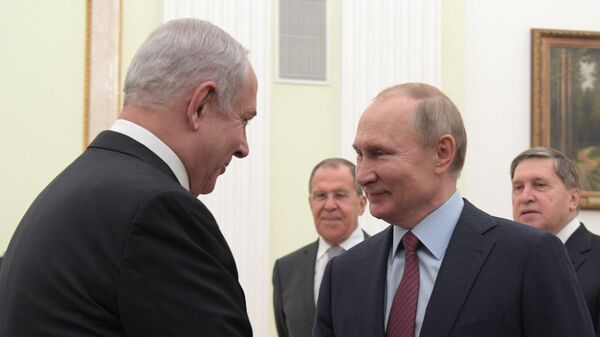The spokesman for the Russian president, Dmitry Peskov, revealed that international visits, both of foreign leaders to Russia and Putin's trips to foreign countries, are often negotiated and organised at an incredibly fast pace, which reflects the current "dynamic" of international relations. He added that the tempo of the logistics suits the Russian president.
"When [Putin] says that the government must be flexible, agile, and effective, he, as I get it, referring to his own manner of doing things. He feels like being in his element while working at this tempo", the spokesman explained.
Peskov further asserted that if an international emergency occurs, the president reacts to it very vividly and the structures organising the meeting on the Russian side start to operate three times faster than normal. He specifically brought up the surprise visit by Israeli Prime Minister Benjamin Netanyahu, which was negotiated on Tel Aviv's request in a mere 24 hours, just three days prior to the visit actually taking place.
The visit, which took place on 30 January, was partially devoted to the recent pardoning and release of Israeli citizen, Naama Issachar, who was sentenced to 7.5 years in prison after she was found with nearly 10 grams of hashish as she traveled through a Moscow airport via transit flight from New Delhi to Tel Aviv. She was released on the day of Netanyahu's visit and returned home on the prime minister's jet.

In addition, the president and the prime minister discussed Trump's "deal of the century" peace plan for the Israeli-Palestinian conflict, which was released several days earlier and received mixed reactions globally while being rejected outright by the Palestinian Authority.



